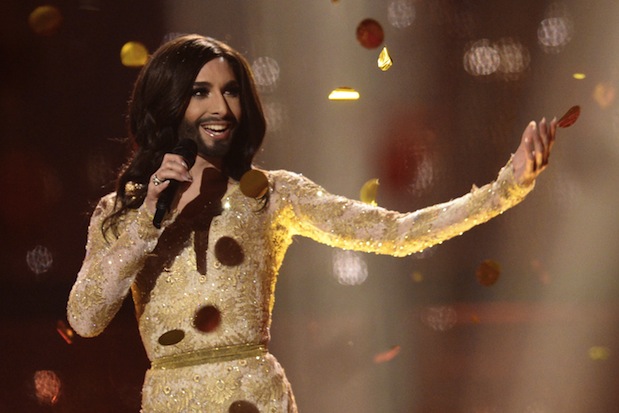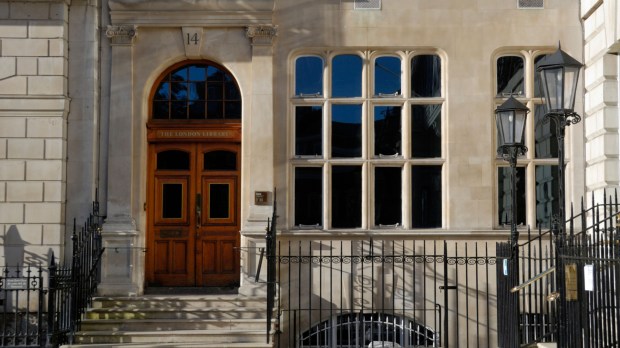David Cameron is said to want a woman to be chairman of the BBC Trust, now that Chris Patten has had to retire early because of ill health. Perhaps he has a bad conscience about what happened last time. By far the best candidate then was the runner-up, Patricia Hodgson, a distinguished BBC veteran who is committed to its virtues and has always understood its vices. She would have led a return to the BBC’s core strengths, and saved licence fee money in the process. But the government did not know what it wanted, so it chose the nearest chum, Lord Patten, who accepted in that casual and complacent spirit and found himself plunged into crisis. Patricia Hodgson is still the best person of either sex for the job, but she has declared she will not apply, because she has only recently begun her work as chairman of Ofcom. Who can blame her? Because of the timing of the election (2015) and Charter renewal (end of 2016), whoever gets the job now will be insecure in it. The money is less than before. The end of the BBC is nigh, or nigh-er. And the government still does not know what and therefore whom it actually wants, so it wails for a woman, any woman.
Last week, volume one of my life of Margaret Thatcher won the Elizabeth Longford Prize for Historical Biography. This made me feel greatly honoured, because I knew and loved Elizabeth — she was our country neighbour — and admired her own biographies greatly. It is also undeniably pleasant to get £5,000 without having to do any extra work, or even apply. This is the third monetary prize that my book has won, and I have been thrilled to discover that prizes attract no tax at all, so £5,000 is £5,000. Since ‘aggressive’ tax avoidance is the in thing, I would recommend that organisations wishing to confer extra rewards on staff should combine with others in their trade — for example, in banking — and invent, let us say, the Lehman Brothers Memorial Prize. They would then pool the enormous sums which in the old days they would have paid as bonuses and turn them into untaxed trade awards.
The political rhetoric against tax avoidance is a cover for greater state powers. The proposals in the Budget to let HMRC take money out of people’s bank accounts are a shocking way of avoiding due process, as the Commons Treasury Select Committee spotted last week. It does not follow, because money is due to the Revenue from X, that X’s money now simply belongs to them. In the row about tax avoidance by Gary Barlow of the band Take That, the BBC quotes an HMRC spokesman as saying that ‘anyone who uses a scheme which HMRC deems to be against the rules owes them money’. If he is correct, then the concept that people’s money is theirs until a court rules otherwise is replaced by arbitrary power.
It is a compliment to a quotation that it gets misattributed, but one should try to give credit where it is due. Reading Rachel Kelly’s excellent new book about depression (Black Rainbow) and Michael Oakeshott’s Notebooks (see last week’s Notes), I spotted in each the use of the phrase ‘The cheerfulness kept breaking through’. Rachel Kelly attributes it to Leonard Cohen, and Oakeshott’s editor, seemingly, to Oakeshott. Cohen himself, I discovered, attributes it to Ben Jonson. My memory told me that it was actually Samuel Johnson, talking to Boswell. I checked, and found that this, too, is wrong. It was someone called Oliver Edwards. He had known Johnson when both were undergraduates at Pembroke, Oxford, and then bumped into him by chance at St Clement Danes church on Good Friday 50 years later. Edwards was a solicitor of the most equable disposition. As he chatted to Johnson, he said, ‘You are a philosopher, Dr Johnson. I have tried in my time to be a philosopher, but, I don’t know how, the cheerfulness was always breaking through.’ This is Edwards’s only contribution to posterity. When the great autodidact Sir William Haley was editor of the Times in the 1950s and 1960s, he used to write a weekly books column for the paper under the pseudonym of Oliver Edwards. Now I think I know why.
It is a current anxiety among British policy elites that the ‘special relationship’ is weakened, so it may be consoling to learn how it was. In the new history of the Lutyens’s British Embassy in Washington (The Architecture of Diplomacy, Flammarion) by Anthony Seldon and my brilliant director of US research, Daniel Collings, President Johnson protests at the prospect of our then Prime Minister, Harold Wilson, visiting him in the 1960s. ‘We got enough pollution around here already,’ LBJ complained in characteristic vocabulary, ‘without Harold coming over with his fly open and his pecker hanging out, peeing all over me.’
I forgot to watch the Eurovision song contest, but I see the judges gave it to an Austrian man with a beard pretending to be a woman. You would have thought that if he had a beard, he wasn’t very good at pretending, but at a party last week a woman told me that in the local council department where she works she is the only female without a beard. The others are all growing one because they wish to be transgender. This sort of thing is said to annoy the Russians very much, and certainly that is a good cause just now, but where does it leave British men?
There are many complaints nowadays of ‘gaming the system’ in GCSE and A-level exams. Apparently private schools are the most ingenious. There is a big industry in doctor’s notes stating that the candidate has some medical disadvantage — eye-strain is a favourite — which requires rest, and therefore an extra 15 minutes in which to sit the paper. I have even heard of a recent case in which a doctor explained that a girl under his care had such large breasts that she too needed to take a 15-minute break. How long before boys start claiming time out for their unfeasibly large extremities?
Got something to add? Join the discussion and comment below.
Get 10 issues for just $10
Subscribe to The Spectator Australia today for the next 10 magazine issues, plus full online access, for just $10.
You might disagree with half of it, but you’ll enjoy reading all of it. Try your first month for free, then just $2 a week for the remainder of your first year.















Comments
Don't miss out
Join the conversation with other Spectator Australia readers. Subscribe to leave a comment.
SUBSCRIBEAlready a subscriber? Log in